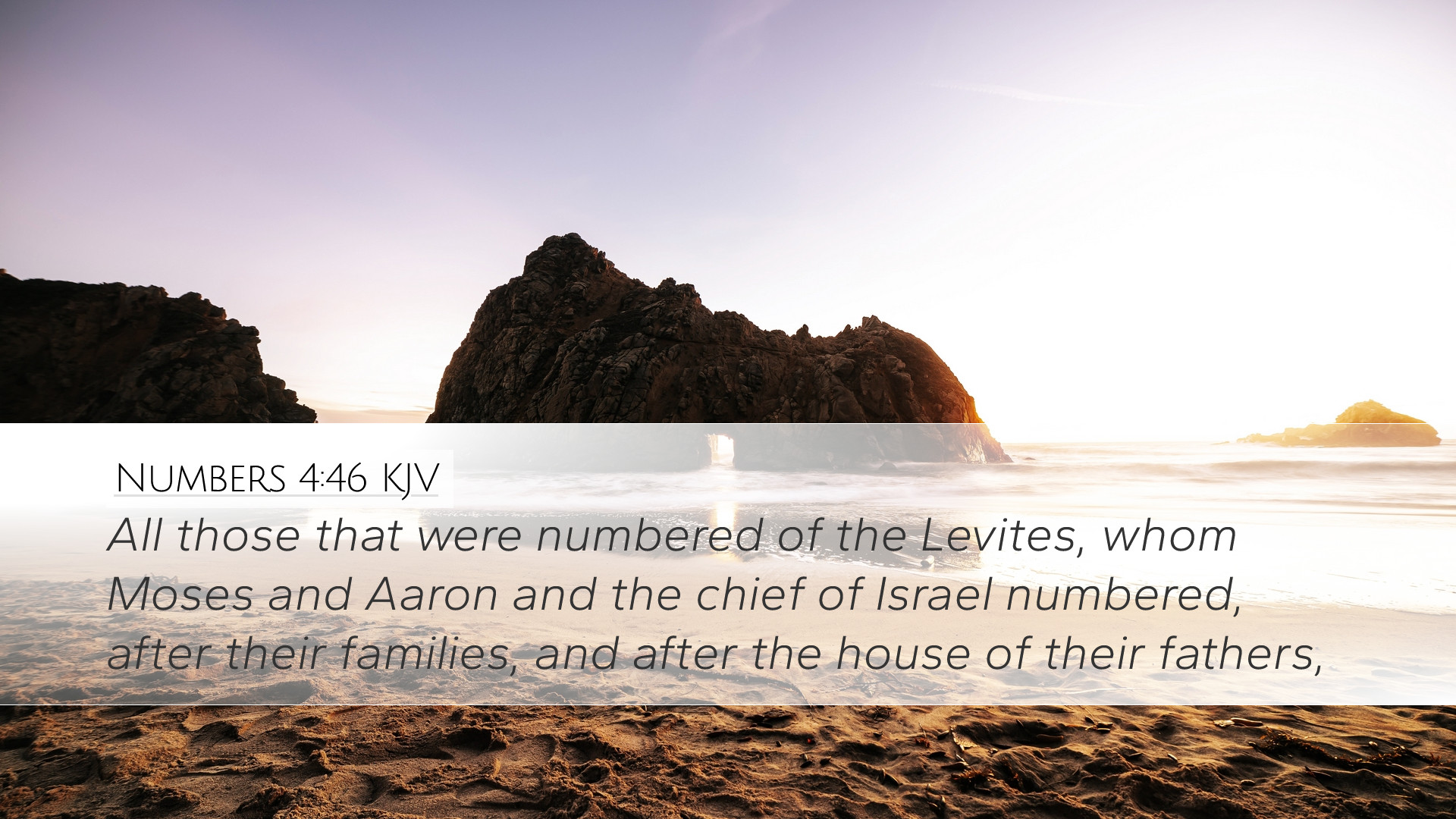Commentary on Numbers 4:46
Verse Reference: Numbers 4:46
Text: "And those that were numbered of them, according to the number of all the males, from a month old and upward, were six thousand and two hundred." (KJV)
Introduction
This verse falls within the context of the census conducted among the Levites, specifically focusing on the population of the Gershonites, one of the three main Levitical families. The counting marks the importance of order and organization within the Israelite community as they journey through the wilderness.
Theological Insights
The enumeration of the males from one month old and upward signifies the value God places on every individual within His covenant community. This principle underscores the theme that each person has a role in God's purpose. In analyzing this verse, we draw on insights from various public domain commentaries.
Matthew Henry’s Perspective
Matthew Henry emphasizes the significance of the numbering of the Levites, which reflects God's care for the work of the tabernacle and the service therein. He notes:
- Divine Order: The structured approach to counting signifies divine order and organization in worship.
- Role of the Levites: The Levites’ specific duties and their numbers indicate the importance of their role in the congregation.
- God's Providence: The detail in numbering reinforces the notion of God's providence, where every individual is accounted for in His plans.
Albert Barnes’ Observations
Albert Barnes expands on the context of this counting, focusing on the importance of the Levites in the sacrificial system:
- Service in the Tabernacle: The counting identifies those fit for service; thus, it becomes a precursor to the division of responsibilities among the clans.
- Implications of Age: The reference to individuals from one month old indicates that even the youngest are recognized as part of the covenant community, establishing their future potential for service.
- Contrast with Other Tribes: This counting serves in contrast to the numbers of the other tribes of Israel, showcasing the unique role and responsibility designated to the Levites.
Adam Clarke’s Commentary
Adam Clarke adds a historical and cultural perspective, interpreting the implications of this counting with more depth:
- Contextual Significance: Clarke emphasizes the cultural practice of census-taking which was critical for military and religious organization.
- Covenant Community: The inclusion of males from one month and older represents the collective identity of Israel as a community under covenant with God.
- Symbolism of Numbers: The number six thousand and two hundred draws attention to the completeness and sufficiency of God’s provision for His people.
Pastoral Applications
For pastors and spiritual leaders, this passage offers numerous applications:
- Value of Individuals: Understanding that each member in the church community is valuable to God can foster deeper connections within the congregation.
- Importance of Order: Church leadership may take cues from the structured approach of the Levites in establishing order within worship and ministry.
- Inclusivity of the Young: Acknowledging the potential of young congregants aligns with the biblical principle that they too are vital members of the church.
Conclusion
Numbers 4:46 serves as a powerful reminder of God’s intentional organization of His people. The detailed account of the Levites illustrates the balance of divine sovereignty and human responsibility. By understanding this verse in the light of historical, theological, and pastoral context, we glean insights that are both practical and profound. As we reflect on this passage, may we appreciate the significance of every individual in the life of the church and the divine order that God establishes among us.


